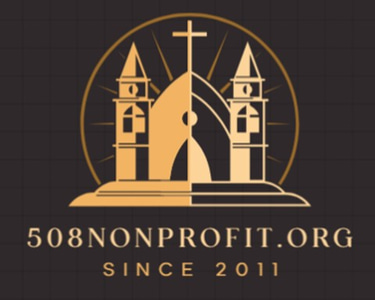

A “508(c)(1)(A)” church usually refers to a religious congregation or ministry that exists and operates without state incorporation and without first applying to the IRS for a formal tax-exempt determination letter.
Under federal tax law, churches that meet the requirements of Internal Revenue Code section 501(c)(3) are treated as tax-exempt by operation of law and generally are not required to file the IRS exemption application (Form 1023) to be tax-exempt.
The IRS itself explains that churches meeting 501(c)(3) requirements “are automatically considered tax exempt and are not required to apply for and obtain recognition of tax-exempt status.” IRS

The 508(c)(a)(1) Church
Video about “508(c)(1)(A)” church
The unincorporated Church


Religious/constitutional concerns
Churches enjoy special protections under the First Amendment (free exercise and limits on entanglement with government).
Privacy and local control
Operating as an unincorporated association on private property (or as a small, home-based congregation) can be attractive to people who want a low-visibility ministry
An Unincorporated Church has:
Simplicity and low overhead. Unincorporated churches can begin operating quickly without the time and cost involved in forming a state nonprofit corporation
Why people choose to use an unincorporated church
IRC §508 generally requires new organizations seeking §501(c)(3) treatment to notify the IRS (by filing Form 1023) within a limited period, but subsection 508(c)(1)(A) creates an important exception: churches, their integrated auxiliaries, and conventions or associations of churches are excepted from that notice requirement and are not required to file Form 1023 to be tax-exempt. In short: churches that qualify under §501(c)(3) are automatically tax-exempt even without applying. (That exception is the basis for the popular shorthand “508 church.”) Legal Information Institute IRS
Summary of 508(c)(1)(a) Church
• A bona fide church that meets §501(c)(3) criteria is treated as tax-exempt by federal law and generally does not have to file Form 1023 to obtain that status. That is the legal basis behind the “508” status.
• However, automatic federal exemption is not a free pass. Churches still must follow tax rules (unrelated business income tax, rules on political campaign activity, recordkeeping), and the IRS can challenge or revoke exemption in appropriate cases. States and localities have their own registration, zoning, or fundraising laws that may apply. IRS+1
It is all ways best to prepare an Articles of Unincorporation (or noncorporation) to have for your reference and as a legal document to go along with your 508(c)(1)(a) status. Also it is recommended that you develop Bylaws and a Constitution.
For additional information on this topic Contact Us
____________________________________________________________________________________________________________________________________
Support
Contact Us: Website Form
Guarantee
Email: the508nonprofit@yahoo.com
© The 508 Nonprofit Agency - 2025 All rights reserved.
ACKNOWLEDGEMENT: Information on this website is for educational purposes only. The 508 Nonprofit Agency does not provide tax, financial, or legal advice outside of matters specifically related to Section 508(c)(1)(A). Use of our services does not establish an attorney-client relationship. While The 508 Nonprofit Agency has legal counsel to assist with Section 508(c)(1)(A) matters, we are not acting as your attorney and do not review any information or documents you provide, for legal accuracy or sufficiency. All member paid services and programs are for educational purposes only.
Live Phone Consultation Appointment
____________________________________________________________________________________________________
About Us
____________________________________________________________________________________________________


